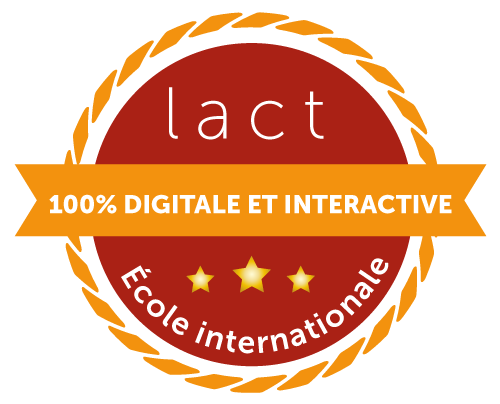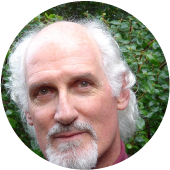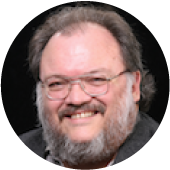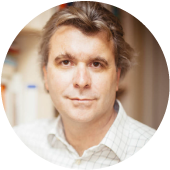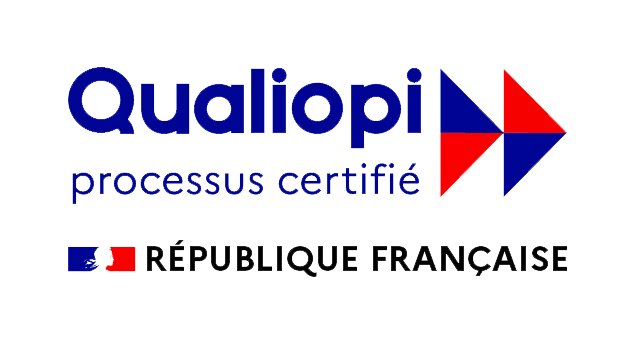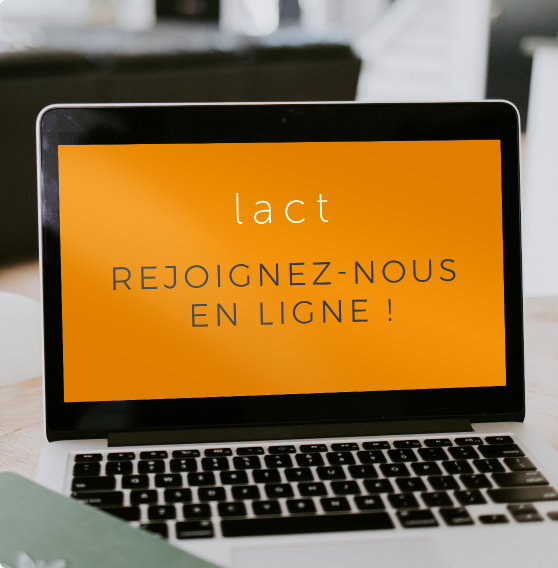
ONLINE OPEN HOUSE
ONLINE OPEN HOUSE
May 6, 2024
from 6:30 p.m. to 8:30 p.m.
MEET US
Come and discover our training courses in strategic systemic approach, hypnosis and systemic coaching. You will meet the trainers and be able to talk with them!
Training in strategic systemic approach to education
to learn how to manage difficult situations with school, children and adolescents
We are pleased to inaugurate training aimed at teachers, school teachers and all education professionals to prevent and deal with difficult situations at school.
Relationship is at the heart of education. At a time when the education system is being tested by the evolution of the fault lines which divide our society and its functioning, teachers, educators, carers and parents are sometimes helpless in the face of the multiplication of difficult situations faced with children or adolescents suffering and facing a profound loss of orientation, sometimes with violent behavior and significant learning difficulties. What posture should you adopt in these blocking situations? How to deal with harassment? How to support disability and other atypicalities? How can we support the teaching process and best support the child? How to include those around you in the change process?

SYSTEMIC TRAINING PATH 2024/2025
Year 1 – Education
FOUNDATION
LEVEL
Prerequisites:
have the BAC
with or without exp.
education Start of courses: 17/12/24
Price of training : €4,200
(special rate excluding special offer)
104 hours of lessons
3 individual supervisions
Approximately 105 hours of personal work
foundation level certificate
Year 2 - Generalist
PRACTICAL LEVEL
Prerequisites:
having validated
the Foundation level
Start of courses: 04/09/24
Price of training : €6,800
(special rate excluding special offer)
147 hours of lessons
3 individual supervisions
145 hours of personal work
- Questioning and relationship
- Observations of sessions
- Strategic dialogue
- Mobilize the strengths of the individual
- Prescription of tasks
- The emotions
- Systemic Grid Practice
- Solution-oriented intervention
- Intervention under duress
- Ambivalence and emotions
- Couples and families
- Collective supervision
- Individual supervision
- Authority Patterns
- International Webinar
- Practice observation
- Create and grow your business
practical level certificate
Year 3 - Generalist
PROFESSIONAL
LEVEL
Prerequisites:
having validated
the Practical level
Start of classes: 09/27/24
Price of training : €6,900
(special rate excluding special offer)
184 hours of lessons
3 individual supervisions
180 hours of personal work
+ 147 hours of internship
relationship clinician diploma
Year 4
Clinical Master
With
![]()
Prerequisites :
having validated
the
relationship clinician
Registration
deadline
December 15
SYSTEMIC TRAINING COURSE 2023/2024
FUNDAMENTALS (EDUCATION)
LACT access
Prerequisites:
BAC
level with or without exp. education
104 hours of lessons
3 individual supervisions
Approximately 105 hours of personal work
Access through![]()
DU access
Prerequisites:
BAC +3
level and educational experience
101 hours of lessons
3 individual supervisions
100 hours of personal work
+ 147 hours of internship
Access via
UNIVERSITY DIPLOMA
systemic approach
to education
with Paris 8 University
foundation level certificate
UNIVERSITY DIPLOMA
Relationship clinic
and strategic intervention
with Paris 8 University
foundation level certificate
LACT access
Prerequisites:
have the BAC +3
and clinical experience
92 hours of lessons
3 individual supervisions
90 hours of personal work
approximately
Access through![]()
in common core
The systemic paradigm applied to education
Strategic action plan in the educational context
School bullying
Difficult situations
foundation level certificate
FOUNDATIONS
DU access
Prerequisites:
have the BAC +3
and clinical experience
89 hours of lessons
3 individual supervisions
90 hours of personal work
+ 147 hours of internship
Access via
UNIVERSITY DIPLOMA
Relationship
and strategic intervention
with Paris 8 University
in common core
The systemic paradigm applied to education
Strategic action plan in the educational context
School bullying
Difficult situations
- Taking into account the family context
- University tutoring and defense
UNIVERSITY DIPLOMA
Relationship clinic
and strategic intervention
with Paris 8 University
foundation level certificate
CONVENIENT
PRACTICAL LEVEL
Prerequisites:
having validated
the Foundations level
147 hours of lessons
3 individual supervisions
145 hours of personal work
- Questioning and relationship
- Observations of sessions
- Strategic dialogue
- Mobilize the strengths of the individual
- Prescription of tasks
- The emotions
- Systemic Grid Practice
- Solution-oriented intervention
- Intervention under duress
- Ambivalence and emotions
- Couples and families
- Collective supervision
- Individual supervision
- Authority Patterns
- International Webinar
- Practice observation
- Create and grow your business
practical level certificate
1 diploma accessible
after obtaining the
practical certificate
systemic coach diploma
IMPROVEMENT
PROFESSIONAL
LEVEL
Prerequisites:
having validated
the Practical level
184 hours of lessons
3 individual supervisions
180 hours of personal work
+ 147 hours of internship
RELATIONSHIP CLINICIAN DIPLOMA
1 diploma accessible after obtaining the Clinician of the relationship diploma
clinical master's degree
in brief
strategic systemic
Clinical Masters with
![]()
Frequently Asked Questions
SCHOOL COURSES
- online training can I integrate without clinical practice?
Our training courses accessible with a Bac level, without clinical experience are as follows:
- https://www.lact.fr/formation-systemique
- https://www.lact.fr/diplome-coach-systemique-en-ligne
- https://www.lact.fr/management-de-la-relation
Our training courses accessible with a Bac+3 in the field of health with clinical experience.
- https://www.lact.fr/du-systemique-strategique-avec-paris-8-en-ligne
- https://www.lact.fr/formation-hypnose-ericksonienne-en-ligne
Accessible training with a Bac+4/5 health professional with confirmed clinical experience.
For any registration, an interview may be proposed with Mr. Vitry Grégoire, Director of Lact, during which your professional background, your motivations and your project will be evaluated, in order to validate or not your application file.
- What are the differences between the DU Clinic of the relationship and strategic intervention and the LEVEL 1 foundations of the school?
There is little difference between LEVEL 1 in systemic approach and DU
Several modules are common core except:
- The “Strategic Communication” module proposed in LEVEL 1, replaced by the “Internship and tutoring” module, just like the “improvement of practice” module replaced by the “emotional regulation” course.
Of course, you have the possibility to register for the modules if you wish. You will be asked to validate them if you then wish to join LEVEL 2 of the school. - The collective supervision module for which you have a specific supervisor.
- A practical internship of 147 hours and the defense of a dissertation is required to validate the DU
- What are the prerequisites for joining the school and the DU?
The "Relationship Clinic and Strategic Intervention" DU is open to professionals from the clinical or social world who wish to obtain University recognition.
It is necessary to hold a BAC + 3 and clinical experience in helping relationships. With regard to the course of the school in strategic systemic approach:
- Foundations level: Bac level.
- Practical Level: You must have validated the foundations level.
- Advanced level: You must have validated the foundation and practical levels.
- Is it possible to assert systemic equivalences?
Requests for equivalence are made on file with an interview.
- What are the conditions for obtaining certification and validating the years?
Foundations level:
- have followed 75% of the live sessions and obtained the minimum mark of 7.5/10 for all the tests and 6/10 for the homework for the year.
- have followed the 3 hours of individual supervision and validate the duty of follow-up.
- present a case in collective supervision and validate the duty of supervision.
Practical level:
- have followed 75% of the live sessions and obtained the minimum mark of 7.5/10 for all the tests and 6/10 for the homework of the year.
- justify a practice of 10 hours of intervention.
- have validated the 3 hours of individual supervision and validate the duty of follow-up.
- present a case in collective supervision and validate the duty of supervision.
Level Perfection of the “Clinician of the relationship” training course (generalist or clinical course)
- have followed 75% of the live sessions and obtained the minimum score of 7.5/10 for all the tests and 6/10 for the homework for the year.
- justify a practice of 50 hours of intervention.
- have validated the 3 hours of individual supervision and validate the duty of follow-up.
- present a case in collective supervision and validate the duty of supervision.
- carry out a 147-hour internship which will be the subject of a dissertation in which your appropriation of the systemic and strategic model and your implementation in the field will be assessed.
- What recognition of the diploma issued at the end of the strategic systemic training course?
At the end of the 3 years of the course of strategic systemic training, you will be awarded the diploma "Systemician - Clinician of the relationship".
Certain courses may be subject to a University certificate. - Is this training suitable for coaches?
Certain training courses (generalist, systemic coach or systemic management and coaching) perfectly concern coaches.
It will allow you overall to acquire a systemic reading in your fields of intervention and more specifically to learn how to analyze the context of the change project, to recognize and manage the different types of resistance to change and to develop resilience at work, in particular with the business path. - Can we follow only the business modules?
You can follow the company modules separately.
However, this does not give you access to the Systemic Coach diploma. This diploma is issued to you after having obtained at least the certification of levels 1 and 2 and/or 3, and of the business modules to which you have access throughout the duration of your training. - I am currently HRD and I want to train in psychotherapy to better support my employees.
Can I join the school? The training course is open to managers, HRDs, or for those who work in HR departments, social relations or training.
You will learn to recognize the dynamics that lead to and fuel the individual or collective problems that you may encounter in your business life (burn-out, harassment, relationship problems, organizational change) and learn to quickly find effective and lasting solutions. Thanks to its methodology, you will also develop strategic skills to better intervene in the field of business or within an institution. You can also more specifically integrate our relationship management training which allows you to deploy your resources to improve your professional performance but also to better understand the relationship and psychological issues. All our training courses are provided by specialized international trainers from the world of business and university.
- I cannot fully commit myself due to scheduling and/or budget constraints.
What are my possibilities? It is entirely possible for you at first to follow only a few à la carte modules to meet your needs without committing to the full year.
A 30% discount will be granted to you from an amount of 3,000 euros. You can also complete the Practical Year and the Relationship Clinician Development Year in 2 years. - If I want to test a few modules before committing to the year, is that possible?
You can completely follow individual modules before registering for the year. In this case, the modules you have taken may be deducted from the annual price, for registration during the year.
- What are we asked for as an internship?
It is a practical and/or observation internship, which you can do for example in a center, a firm, an association, or an institution according to your profile and which allows you to deploy your learning.
From the 2nd and 3rd year, you are asked to practice. If you already practice, it is possible to integrate your own practice into your internship but you will be asked, as far as possible, to devote time from your practice to the application of the model in order to produce work related to your training.
FUNDING
- Can your training be financed through the CPF or otherwise with the employer?
You have the option of applying for funding directly from your employer.
To date, it is possible to obtain funding via your CPF for the "create your own business" training.
- I am a job seeker, is it possible to request funding from Pôle Emploi?
You have the possibility to apply for financing through Pôle Emploi, via the KAIROS platform, to do this, you can contact Leila by email:
- Can we pay in several installments?
You can pay in 3 installments (with
50 € administration fee ) or in 10 installments (with 150 €) directly on our site when you register.
| Funding arrangements | Persons concerned |
|---|---|
| Personal financing in 1 installment, 3 installments + €50 application fee, 10 installments + €150 application fee | Anyone wishing to register for LACT training |
| Company-HR Department (via attached OPCO) | company employee |
| CPF via Moncompteformation.gouv.fr | Employee, job seeker, liberal profession, business manager |
| Pôle Emploi (via KAIROS) Regional councils | Job seeker |
| FIFPL (liberal prof. excluding doctors), FAF-PM and ANDPC (doctors), AGEFICE (entrepreneur), FAFCEA (craftsman, merchant) | Liberal profession, business manager, auto entrepreneur (in addition to or instead of the CPF) |
| The skills development plan | Employee and civil servant (large company and administration) |
| Agefiph | Person with a disability |
| CSP (Professional Security Contract) | Employee in situation of economic redundancy |
PRACTICAL PROGRESS OF OUR TRAINING
- How is the remote practice going?
All classes take place via the ZOOM platform which offers the possibility of creating different spaces/rooms to offer you group work (regardless of the size of the group). In this, it is very easy for us, logistically, to organize these practice times.
- How to connect to the courses?
To connect to the lessons, you must have a good internet connection and in the event of an unstable connection, you can do so by telephone, while following the videoconference.
- Is it compulsory to be present for the lessons?
The training is in web-face-to-face, so you are asked to be present at the lessons.
However, we exceptionally accept a few absences (while recalling that one of the module validation criteria is an attendance time of 75%). Although this training takes place only online, we have interaction at heart, because practice is a central point in learning and these face-to-face sharing times allow us to set up an interactional and experiential dynamic. Experience is essential to learning.
- Is all of the training taking place remotely?
The entire training takes place remotely but you have the possibility of carrying out your hours of individual supervision in Paris in person. New for 2023: We are setting up the possibility of taking some face-to-face courses (limited number of places).
- How do we access course content?
You have access to the video recording, the slides, the bibliography, an exchange forum and all the knowledge tests for the validation of your modules by logging into your Moodle account. This account is accessible throughout the duration of your registration at the school.
- Are all the courses in French?
Some courses are in Italian or English simultaneously translated into French.
To find out the prices, select the training that interests you
MAPPING OF ALL LACT TRAINING COURSES
AND STRATEGIC APPROACH
Prerequisites
_
general
Bachelor's degree
with or without
clinical experience
clinical
Bac +3
with
clinical experience
Bac +5
with
clinical practice
education
Bachelor's degree
with or without
teaching experience
Bac +3
with
teaching experience
BUSINESS
Bachelor's degree
with or without
coaching experience
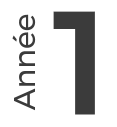
LACT
CERTIFICATE -
FOUNDATIONS LEVEL
UNIVERSITY
DIPLOMA -
RELATIONSHIP
CLINIC AND
STRATEGIC
INTERVENTION -
with
Paris 8 University
DIPLOMA
-
MASTER
®
IN
STRATEGIC SYSTEMIC
LACT
CERTIFICATE –
EDUCATION
FUNDAMENTALS LEVEL
UNIVERSITY
DIPLOMA -
STRATEGIC
SYSTEMS APPROACH TO
EDUCATION
-
with
Paris 8 University
LACT
CERTIFICATE -
SYTEMIC
COACHING
FUNDAMENTALS LEVEL
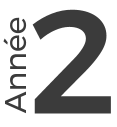
LACT CERTIFICATE - PRACTICAL LEVEL
COACH
DIPLOMA ®
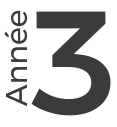
SYSTEMICIAN ® - RELATIONSHIP CLINICIAN ® DIPLOMA - ADVANCED LEVEL
CLINICAL MASTER® DIPLOMA IN STRATEGIC SYSTEMIC THERAPY ![]()
AND STRATEGIC APPROACH

general
Bachelor's degree
with or without
clinical experience
clinical
Bac +3
with
clinical experience
Bac +5
with
clinical practice
LACT
CERTIFICATE -
FOUNDATIONS LEVEL
UNIVERSITY DIPLOMA
RELATIONSHIP
CLINIC AND
STRATEGIC INTERVENTION
with Paris 8 University
MASTERS
®
DIPLOMA IN
STRATEGIC SYSTEMIC
BUSINESS
Bachelor's degree
with or without
coaching experience
education
Bachelor's degree
with or without
teaching experience
Bac +3
with
teaching experience
LACT
CERTIFICATE -
SYTEMIC
COACHING
FUNDAMENTALS LEVEL
LACT
CERTIFICATE –
EDUCATION
FUNDAMENTALS LEVEL
UNIVERSITY
DIPLOMA –
STRATEGIC
SYSTEMS APPROACH TO
EDUCATION
with Paris 8 University

PRACTICAL LEVEL CERTIFICATE
DIPLOMA
®

SYSTEMICIAN ® - RELATIONSHIP CLINICIAN ® DIPLOMA - ADVANCED LEVEL
CLINICAL MASTER® DIPLOMA IN STRATEGIC SYSTEMIC THERAPY ![]()
PRESENTATION OF OUR SCHOOL
The systemic and strategic model was born from the desire of a team of psychiatrists, philosophers, anthropologists and engineers from the Mental Research Institute (MRI) of Palo Alto to provide effective and efficient therapeutic assistance to the psychological and relational suffering of their patients. . It is an approach focused on the resolution of psychological and relational problems oriented on the present in all types of contexts (problems relating to oneself, to others or to the world in general). Therapeutic intervention aims at a concrete objective of change and is based on a fundamental concept: the cessation of attempts at a solution. The practitioner uses strategies to make the patient live concrete emotional experiences of change, which will allow him to find a new solution. This model is intended to be non-normative, non-pathologizing and empowering; it solicits the active participation of the person with a view to lasting change. The training starts from the difficulties of health professionals in the face of their patients' resistance to change in current therapeutic processes (e.g. difficult relationship with the patient, difficult relational environments of patients which influence the therapeutic process, difficulties in observing prescriptions medical procedures, management of complaints from patients and those around them, etc.).
The problems treated with the strategic systemic approach are both collective and individual, professional and personal (Addictions, Bi-polar disorders, Lack of self-confidence, Disorder of performance, Conflicts, Burn-out, Eating disorders, Problems of couples - families - school, Depression, Harassment, Suffering at work, OCD, Anxiety disorders, Sexual disorders, Panic attacks, etc.)
OBJECTIVES AND PEDAGOGY
![]() OBJECTIVES
OBJECTIVES
Acquire a diploma attesting to a complete theoretical and practical training aimed at solving psychological and relational problems according to the strategic systemic approach and in hypnosis developed by the school of Palo Alto and developed by its research and intervention centers current.
![]()
FOR WHOM
You are involved in the clinical world (doctor, psychiatrist, psychologist, pharmacist, nurse, psychotherapist...), in the social world or in business (HRD, coach, manager or operational), this training is for you . You want to acquire solid training in solving relational and psychological problems. Possibility for clinicians (psychologist, doctor, psychiatrist, nurse, etc.) to obtain a UNIVERSITY DIPLOMA via PARIS 8 University, allowing them to obtain LEVEL 1 INITIATION.
![]()
PEDAGOGY
Our training is designed to facilitate learning and adapt it to your study requirements.
For this reason, we favored proximity and repetition. The courses are organized according to a rhythm that allows you to acquire the best knowledge, advancing regularly and gradually. You also have the opportunity to see yourself learn and review the lessons because all the interventions are recorded and made available to you. Benjamin Franklin said, “Tell me and I'll forget it. Teach me and I will remember. Involve me and I will learn.” Our pedagogical approach is centered on practice thanks to simulations, role plays, exercises and live case studies so that you can better appropriate the course content. We ask you to be active and intervene in class in scenarios to put into practice the knowledge acquired and obtain personalized feedback from the teachers.
![]() OUR TRAINING PLATFORM
OUR TRAINING PLATFORM
Thanks to a remote and live interactional learning platform, you will follow the courses by participating from your home or your workplace. Our webinar training is at the service of interaction. It promotes a common pedagogical and learning path that stimulates cooperation and the vitality of the network of participants. A system that facilitates the monitoring of training. In the same portal you will find: courses and their educational animations, course materials, documentary bases and all types of educational documents, review exercises to complete and consolidate your knowledge and tests to evaluate your training.
INTERNATIONAL TRAINERS
exceptional international trainers,
Medical professors, psychiatrists, hypnotherapists, psychologists and researchers

Renowned speaker and co-founder of the Center for Systemic Action. She is a research associate at the MRI in Palo Alto and at the Brief Therapy Center, CAIPSI in Mexico City and at the Erickson Institute in Madrid. She is also a supervisor at the YAI National Institute for the Disabled, an organization that helps people with mental disabilities and their families throughout their lives.
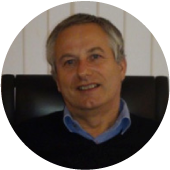
Psychiatrist, child psychiatrist, psychotherapist. Trained in Ericksonian Hypnosis, Problem-Oriented Brief Therapy (Palo Alto), EMDR (Additional Facilitator Training, EMDR Supervisor), Mediation Pedagogy. He is a trainer in hypnosis, brief systemic therapies, EMDR/HTSMA. He is the designer and organizer of the HTSMA training courses (Hypnosis, Strategic Therapies and Alternative Movements). He is the director of the Mimethys Institute in Nantes.
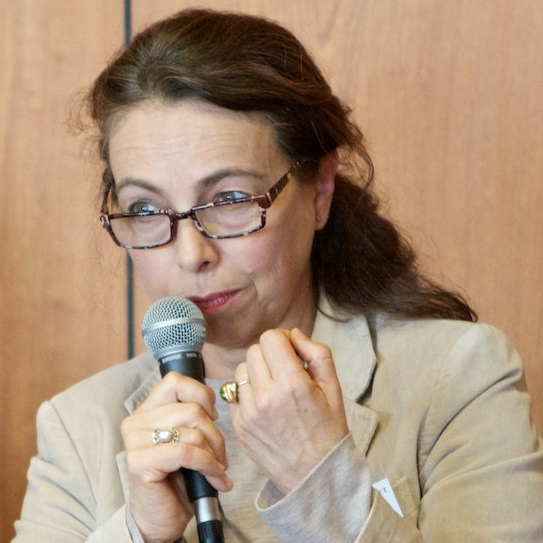
Psychiatrist and President of the French Association of Criminology
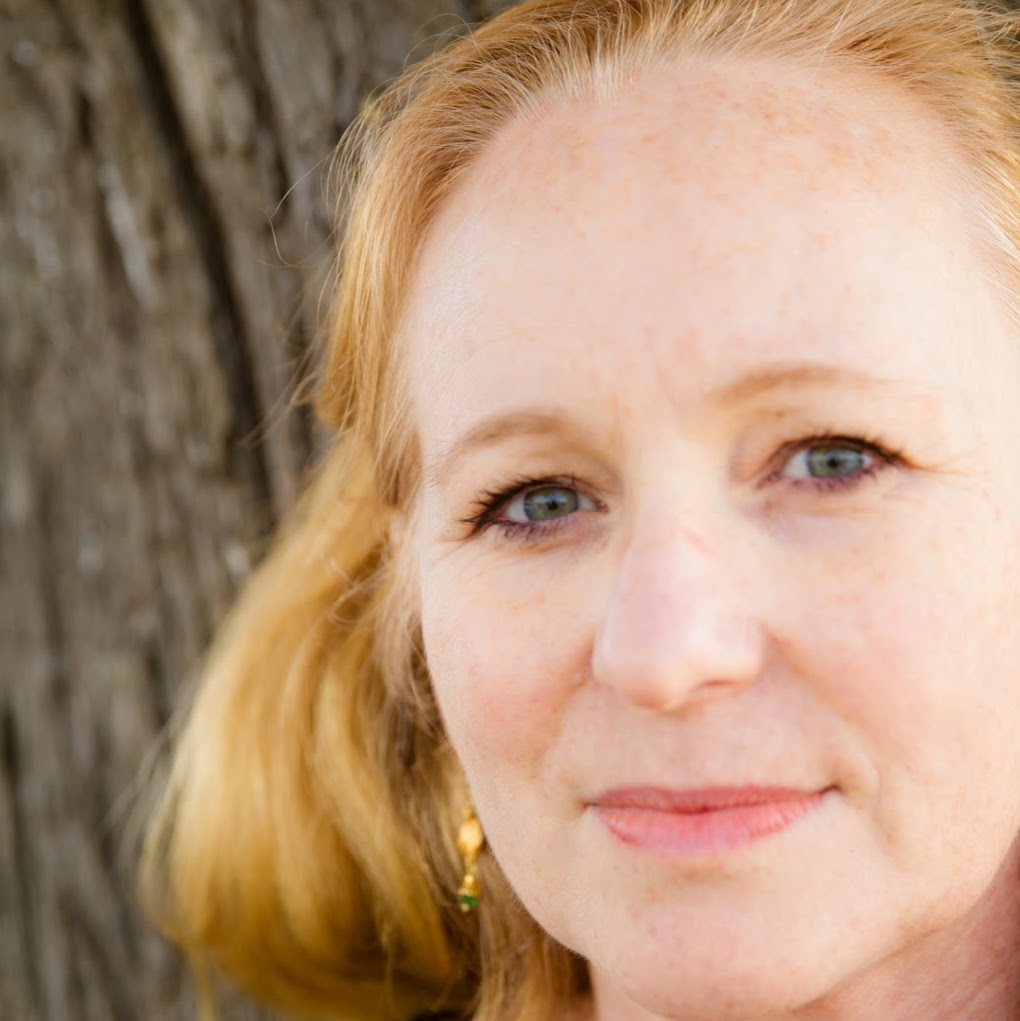
filmmaker , writer, political adviser and international speaker. She is the daughter of Gregory Bateson and granddaughter of William Bateson and is president of the Stockholm-based International Bateson Institute (IBI), a research group specializing in transcontextual research on human and other living systems.
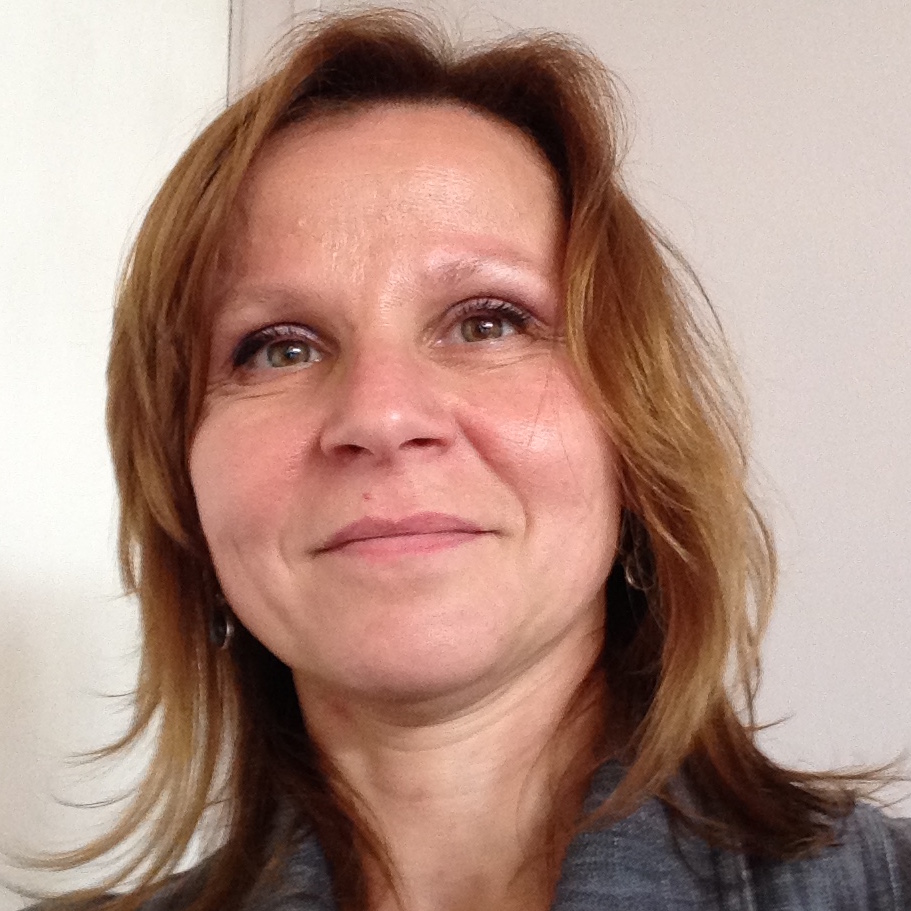
A psychiatrist trained in hypnotherapy and family therapy, she is enriched by the strategic approach of Palo Alto. Manager of the Family Therapy Center at NANCY Hospital.

HDR Lecturer, University of Limoges Doctor in management sciences Member of the CREOP EA 4332 research team Associate member of CeReS. Trained in the strategic systemic approach, specialist in relational issues in management.
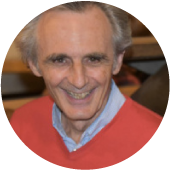
Hospital psychiatrist, head of the Loire-Atlantique therapeutic family care department, Blain CHS. Lecturer in Nantes at the Faculty of Psychology (Cognitive and Clinical DESS) and at the EBU of Medicine: DU Addictions, DU Therapeutic Hypnosis, DU Pain. Family therapist, addiction service of Nantes University Hospital. Pedagogical manager and trainer at the Arepta-Institut Milton Erickson in Nantes. Trainer at the CHTIP in Paris. Co-author with Y. Doutrelugne, O. Cottencin, L. Isebaert and D. Megglé of Brief interventions and therapies: 10 concrete strategies, crises and opportunities, Masson editions, 2016.
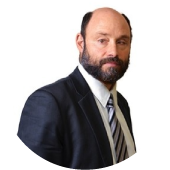
He teaches philosophy at Essec (Higher School of Economic and Commercial Sciences) where he is responsible for the Management and Philosophy section. He published his latest work Complexity and Organizations: facing the challenges of tomorrow (Eyrolles, 2018) in collaboration with Edgar Morin.
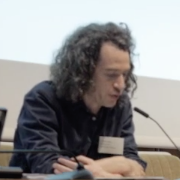
Mario Blaise is a doctor of medicine, holder of a DES (Diploma of specialized studies) in Psychiatry and a DESC (Diploma of complementary specialized studies) in Addictology. He has been a Hospital Practitioner in General Psychiatry since 2007. Since September 2014, Mario Blaise has been Head of Unit at the Marmottan Medical Center in Paris, specializing in problems with legal or illegal products, or drug-free addictions. He has been a member of the board of directors of the Addiction Federation since 2015. He is the author of several articles and contributions to books on addiction.
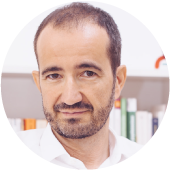
Therapist, coach, supervisor and trainer in strategic systemic approach, associated with LACT. He teaches at the IAE of Paris within the Master of Administrations and Companies the module "Organizations and behaviors".
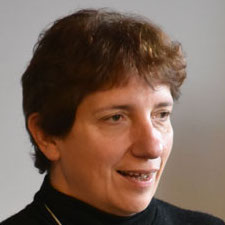
Psychiatrist, psychotherapist, head of the Paris 11 psychiatry center at the Saint Maurice Hospitals. Author of: For a brief therapy. The patient's free choice as an ethic in psychotherapy.

French neurologist, psychiatrist, ethologist and psychoanalyst, he is responsible for a research group in clinical ethology at the Toulon-la-Seyne hospital (1972-1991). He published his first work Memory of a monkey and speech of man in 1983 . Boris Cyrulnik is best known for developing the concept of “resilience” (being reborn from one’s suffering). He also participated in the Attali commission on obstacles to growth, led by Jacques Attali and installed on August 30, 2007 by Nicolas Sarkozy. He has published thirty works.

Psychologist, psychotherapist and co-founder of LACT, of which she is the president. She runs the OCD and Anxiety Disorders Clinic in partnership with the European center the OCD Clinic. She teaches and trains via the web at the relationship clinic within the international school LACT. Within the CSAPA of Montreuil, she has a consultation specializing in addiction disorders and supervises the team. She is the co-author of several books and regularly gives conferences.

Doctor in psychology, family therapist, educational manager of the French Institute of EMDR, EMDR facilitator, EMDR supervisor and EMDR supervisor specialized in children and adolescents.

Since 1975, Robert DILTS has been one of the main researchers and developers of neuro-linguistic programming (NLP) and its applications to the fields of health, education and business. Robert Dilts is an internationally renowned writer, coach, consultant and researcher.

Independent psychiatrist in Rennes since 1992, hypnosis practitioner and trainer. He is the author of various books and articles: From loyalty to betrayal. How not to be depressed anymore? in the journal Hypnosis and Brief Therapy. (2014); The Clandestine Ages. in the journal Hypnosis and Brief Therapy. (2013); Anorexia in young girls: from chrysalis to butterfly. in the journal Hypnosis and Brief Therapy (2008); Cure eating disorders. SATA Editions. (2006).

Professor of clinical psychology and responsible for three university degrees at Paris-8 University. His research and publications focus on family therapy, processes of change and resilience, emotional regulation, addictions and suicidal behavior. She works as a family therapist at the Monceau center in Paris. She is a trainer in the systemic approach and family therapy.
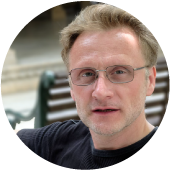
Vincent GÉRARD holds a master's degree in clinical psychology and postgraduate training. For more than 25 years, he has been offering concrete, rapid and effective therapeutic tools to people who are confronted, at some point in their lives, with a personal, family, professional or emotional problem. He is a lecturer, he has trained many psycho-medico-social workers in Belgium, France, Switzerland and Luxembourg.

D.Psych, consultant clinical psychotherapist, founder of OCD Clinic® ( the OCD clinic ) and training at The Coaching Clinic®. A senior research associate at LACT/SYPRENE and lecturer at Dublin City University, he specializes in behavioral psychology and strategic problem solving. He teaches and conducts research at the Centro Di Terapia Strategica in Italy. Author of research published in renowned journals such as the British Medical Journal, he currently supervises international research projects.

Doctor in Psychology, Director of Training at the Institute for Family and Human Systems Studies in Brussels. Honorary Professor at the Free University of Brussels and Founding Member of the European Association of Family Therapy, of the Belgian Group of Trainers in Systemic Psychotherapy and of the Belgian Association of Interveners and Systemic Psychotherapists. She is editor-in-chief of Cahiers critiques of family therapy and network practices.

Agronomist. PhD, She is a career development coach and trainer on the following subjects: public speaking, interview preparation, team building, leadership development, negotiation.
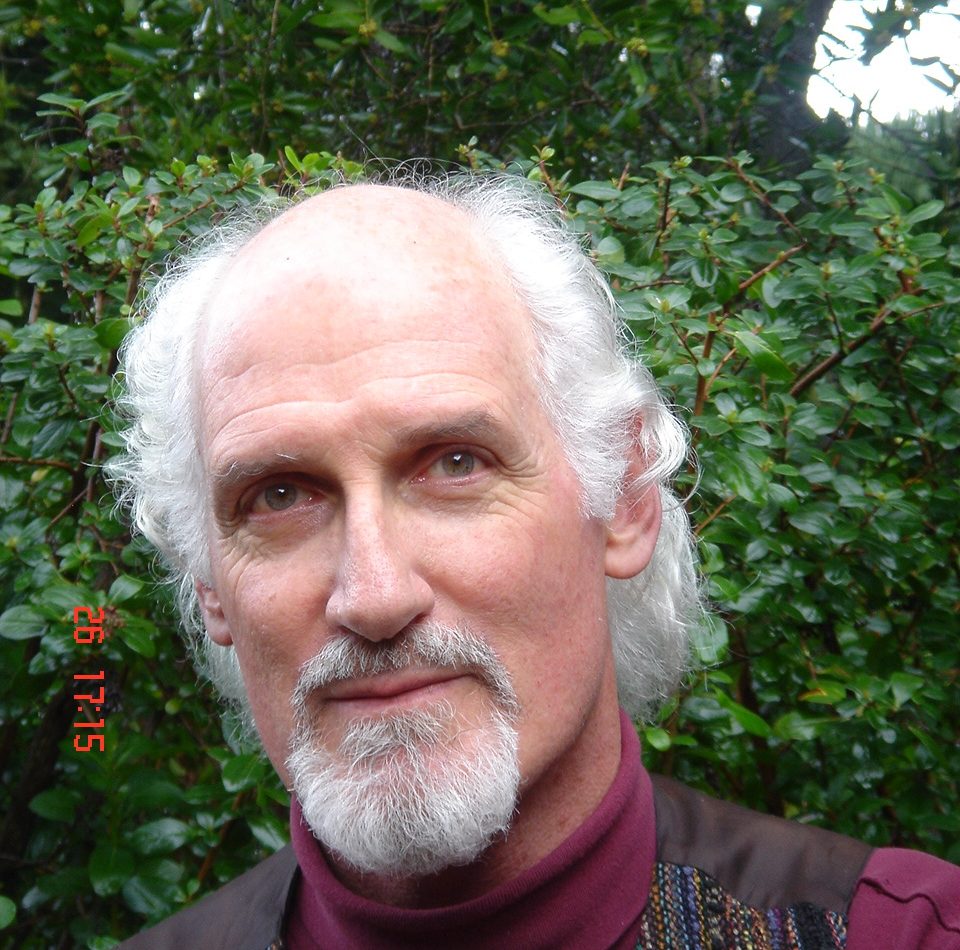
Independent psychologist in Mill Valley, CA. He is the author and editor of numerous books on Brief Psychotherapy, including "Brief Therapy and Beyond", "Capturing the Moment" and "Single-Session Therapy By Walk-In or Appointment". He was honored as a Contributor of Note by the Milton H. Erickson Foundation and named a Distinguished Lecturer in Continuing Education by the American Psychological Association and the International Association of Marriage and Family Counselors.

After initial training in Hellenism, François Jullien brilliantly branched out towards the in-depth study of Chinese thought and language, illustrated by his exceptional academic career. Entering the École Normale Supérieure in 1972, he became an associate professor at the university in 1974, before deepening his knowledge in China between 1975 and 1977. His commitment to intercultural understanding and his deep analysis of otherness enriched dialogue between civilizations. He is co-author of the work edited by Grégoire Vitry Getting out of addiction?

Psychologist and psychotherapist at the Korzybsky Institute in Bruges. Mental coach and sports coach.
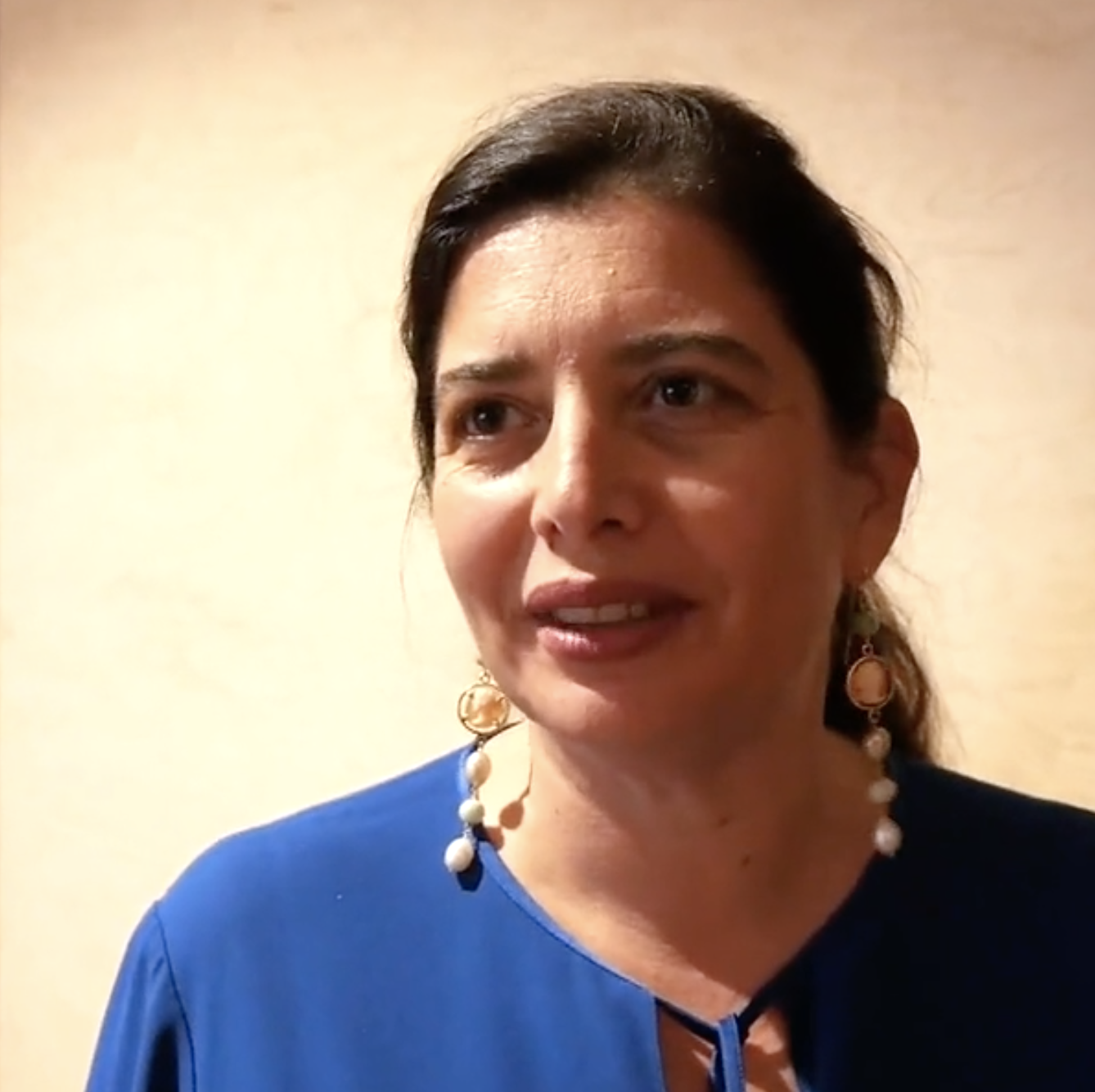
Currently HR Director of the animation studio Illumination Paris, Isabelle Lugnier has acquired experience in international human resources management in the worlds of consumer goods (Colgate Palmolive, Energizer), entertainment (Walt Disney Feature Animation, CANAL + Group) and luxury (Shiseido, Richemont group). Trained in the systemic approach of Palo Alto and positive psychology, Isabelle Lugnier also teaches in the master media of SciencesPo Paris.
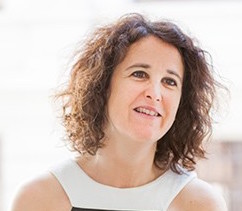
Psychologist, psychotherapist and researcher at the CTS of Arezzo. Head of the Milan office, affiliated to the CTS. Author of the book: "Changing the past. Overcoming traumatic experiences with strategic therapy".

he is the founder of the International Center for Clinical Excellence, an international consortium of clinicians, researchers and educators dedicated to promoting excellence in behavioral health services. Mr. Miller conducts workshops and training in the United States and abroad, helping hundreds of agencies and organizations, both public and private, achieve superior results.
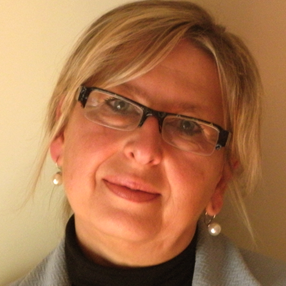
P sychologist and psychotherapist, specialized at the CTS of Arezzo directed by Giorgio Nardone, and at the MRI of Palo Alto with Paul Watzlawick. She is a researcher and lecturer at the School of Specialization in Strategic Therapy and a professor at the Faculty of Medicine of the University of Siena. She is also responsible for the affiliated practice of Strategic Therapy in Florence, where she carries out clinical and consulting activities.

He is the founder with Paul Watzlawick of the Strategic Therapy Center of Arezzo.
Currently he works in research, training and therapy at the Center for Strategic Therapy in Arezzo. He is director of the Higher School of Brief Strategic Therapy. He is the author of numerous books and he gives conferences, seminars, workshops and workshops to the general public around the world.
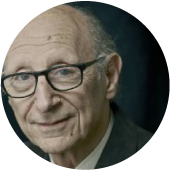
Dr. Robert Neuburger is a psychiatrist, systemic therapist specializing in couple issues. He teaches at the Free University of Brussels, trains and supervises therapists in France and abroad. In addition to being scientific director of the CEFA (Center for the study of the family association) and vice-president of the French Society for Family Therapy, each month he receives a Psychologies.com Internet user for his first session of therapy.
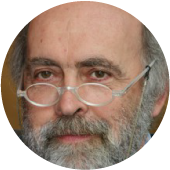
Professor of therapeutics option Internal medicine. Specialist in cardiology and angiology. Graduated in Cognitive-Behavioral Therapy and Pharmacology. Psychotherapist-Analyst.
Specialist in addictive behaviors, anorexia and the management of pain and trauma.
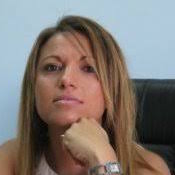
PhD in Psychology, CTS psychologist, trainer and coach (Italy - Malta). Author of "Knowledge through change", " Obsessions, compulsions, manias: understand them and overcome them quickly" and "Le nuove dipendenze".
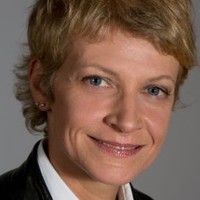
Management consulting. Business coach and Professional counsellor. Member of CTS. Co-author of "The winning company".

Psychologist, Psychotherapist and Researcher at the CTS of Arezzo (Italy). Head of practice in Milan, Brescia, Seregno (MB) and Borgomanero (NO).
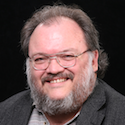
Research director at the MRI of Palo Alto. Professor of Family Systems Theory in the Masters and Doctoral Programs in Couple and Family Therapy at the University of Louisiana at Monroe (ULM). Founder and Director of the “Don D. Jackson Archive”.
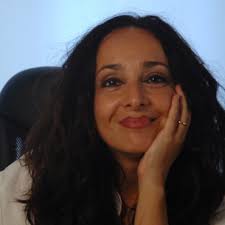
Psychologist, Psychotherapist, Researcher and Professor at the Strategic Therapy Center of Arezzo.

One of Milton Erickson's favorite students, Dr. Ritterman is a pioneer in the integration of hypnosis and family therapy. She has trained thousands of psychotherapists worldwide in her methods of working with couples and families. Dr. Ritterman's many published articles focus on couples, time, interacting trance, and states of mind.
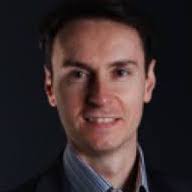
He worked for nearly twenty years on HR issues. He has been working for ENGIE Corporate HR for eight years. Very involved in personal development and training, he notably trained in leadership & change management and then in strategic systemic coaching with representatives of the Palo Alto school. He was successively involved with students from ESC St Etienne (BA EM Lyon) then ESSEC, but also within the Corporate University.
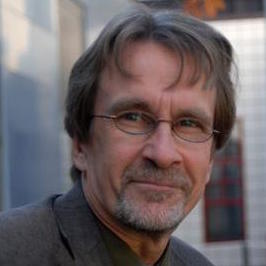
Professor of Psychotherapy at the University of Jyväskylä in Finland. Psychologist and family therapist. He developed the Open Dialogue approach.
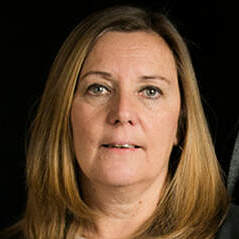
A graduate in social sciences, she was first trained in the systemic approach oriented family therapy to specialize in 1996 in the Systemic and Strategic model of Palo Alto. Psychotherapist, Trainer, Supervisor and Research Associate at the Gregory Bateson Institute. Recognized as an Expert by the Courts, she fulfills missions of mediation and judicial expertise ordered in the context of conflicting parental separations and adoption.
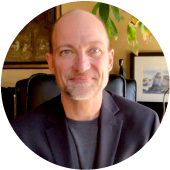
Clinical psychologist. Expert in Ericksonian psychotherapy and clinical hypnosis. Executive Director of the Milton H. Erickson Institute of Phoenix. He has years of experience in diverse settings such as Domestic Violence Agency, University Counseling Center and in the school sector with the Department of Special Education.
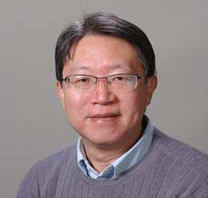
Family and couple psychologist. Director of the Family Therapy Clinic at MRI Palo Alto. Associate Professor of Family and Couple Therapy at California State University East Bay.
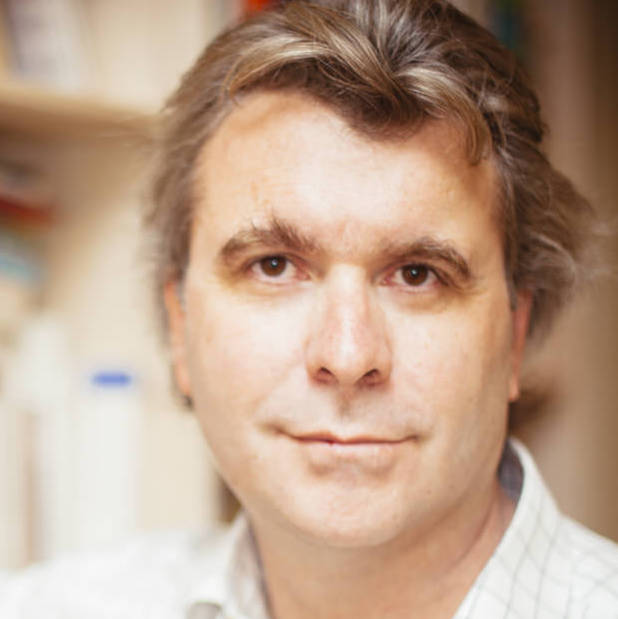
Director and co-founder of LACT. Scientific director of the international LACT research program and director of the international LACT training school with CIRCÉ.
The systemic approach: an interactional reading of education
The Palo Alto Systemic and Strategic Model is a present-oriented approach focused on resolving psychological and relational problems in all types of contexts. It is particularly effective in the fields of education and makes it possible to identify and stop the dysfunctional processes which often take place between the child and his environment (at school and/or at home), maintain or aggravate a situation that is often paralyzed within a rigid framework. It makes it possible to deal with problems such as school bullying, difficult situations with atypical children, to avoid dropping out of school and the onset of psychological disorders in the child but also in the accompanying person, who, faced with their inability to act, can lose confidence and sink into depression or burnout.
Training in the strategic systemic approach to education
The DU Strategic Systemic Approach to Education (ASSED) at the University of Paris 8/LACT aims to train teachers, school professors and education professionals for better prevention of dysfunctional relationships at school. This training allows you to acquire the tools of the systemic and strategic approach which will allow the teacher or any support person to put the relationship at the heart of their support. A theoretical part on the fundamentals of the approach will be followed by practical sessions on specific teaching issues such as school bullying and difficult situations. Certain disorders will be discussed such as attention disorders, “DYS” and “hyper”, as well as disorders affecting teachers, depression, burnout, loss of self-confidence, etc. The course is validated by a practical internship and collective and individual supervision. It will allow participants to discover the systemic and strategic approach, to identify dysfunctional relational processes and to block them to put the relationship at the heart of teaching.
Discover the strategic systemic paradigm applied to the education context
This 12-hour course module presents the fundamental elements of the systemic model and its main strategic characteristics and their applications in the context of education. Thanks to practical exercises based on video sessions or case studies, the participant will be able to familiarize themselves with the key concepts of the strategic approach and apply them through the intervention grid. It allows you to deploy a systemic and strategic vision in your current or future practice of solving relational and psychological problems in the world of education. Identify the premises from systems theory.
Define a strategic action plan in the educational context
This 12-hour module aims to develop a fundamental skill in different educational contexts. As Karl Popper said: “All of life is problem solving.” Teachers, educators, parents, educational health professionals, guidance counselors must put in place sometimes for themselves, often for others, solutions that allow them to escape the usual traps in which people are locked up. They must have the necessary instruments which must be acquired and eventually mastered.
During this module, participants will acquire operational tools to be able to better define precisely the problem encountered in the educational or family context, the emotions that are at work, in order to find the most appropriate solutions. Participants will acquire new methods of investigation that will lead them to think outside the box, to find solutions even in seemingly impossible situations. Participants will learn problem-focused techniques and solution-focused techniques to be able to thoroughly evaluate the problem they are facing. They will receive a kind of master key that can be applied to different situations and educational contexts.
The strategic problem solving method is rigorous but not rigid, and can be applied to different contexts: individual, family, school, high school, college, university, associations, etc. It adopts an ecological approach which does not seek to know who is wrong or who is right but is rather interested in establishing better regulation in the relationship of oneself to oneself, of oneself to others or of oneself to the world; an approach to avoid dealing with problems in a single way.
This training module has two objectives. First, build, from a systemic and strategic vision applied to the context of education, a strategic action plan making it possible to implement - both with a class and with a child or adolescent - a practice of resolution of relational and psychological problems. Second, implement systemic management of diversity upstream aimed at improving relationships between students.
The practice of the systemic education grid
This 12-hour course module allows you to experience each step of the Palo Alto School's Brief Therapy Center grid from a perspective of strategic systemic intervention applied to the educational context. Practical exercises in subgroups, mixing concrete practice and observation will help identify the main issues of an intervention: the contextualization of a problem, the position of the student or parent and their vision of the world, the clarification of an interactional sequence through which the problem is currently and concretely perceived, the clarification of the student's or parent's attempts at solution and the formalization of a minimum intervention objective. It is therefore a question of experimenting, step by step, with the implementation of the problem resolution grid of the strategic systemic approach, and of organizing a collection of information making it possible to describe the current functioning of the problem of the student or parent in a systemic reading. This additional transversal contribution is transferable to different types of activities and functions such as professionals in education, support, helping relationships or the clinical world.
School bullying
Nine hours are devoted to harassment and the apprehension of the management of difficult and violent situations of harassment handled according to Brief Strategic Therapy. Role-playing games will help children and adults to identify, intervene and react in cases of harassment with different scenarios (insults, mockery, rumors, exclusion, cyber, physical violence, etc.).

Difficult situations (DYS, ADHD, HP, Burn-out, etc.)
This 12-hour module focuses on indirect approaches to developing children's resources. This is a module offering an in-depth study of the interactional, systemic and cybernetic models that underpin the relationships established around atypical children.
Taking into account the family context
This 3-hour module focuses on the complexity of the encounter between the family system and the educational system with the identification of family clinic theories and case studies allowing us to question the link between school and family.
Theoretical and practical training
Alongside theoretical teaching, individual and group supervision followed by on-site training allows supervised practical application at each stage of the training.
Training for whom?
These systemic and strategic skills are essential for all education professionals, teachers, educational staff or those in relation to the world of education, school leaders, parents of students, association leaders, association staff sports, school psychologists, guidance counselors, school mediators, doctors, nurses, psychotherapists, educators, police, SPIP, justice assistants, child protection personnel, etc.
Read also:
- The indirect approach in schools: helping parents and teachers to help children
- the strategic systemic approach in the school environment
- "Authority and leadership": testimony from Etienne FARRELL, School Principal
- Harassment and strategic communication at school by Marie QUARTIER
- Dealing with resistance to change - THE CASE OF SCHOOL DIRECTORS by Claudette PORTELLI
I would like to make an appointment
Recent articles and videos
- Systemic therapy in patients with chronic pain
- How to increase the effectiveness of psychotherapy practice?
- Research on school bullying
- The psychological impact of lying and self-deception
- TOC: Where is the line between doubt and obsession?
- The double bind theory
- Hypnosis training: silence in the practice of hypnosis
- Hypnosis and brief therapy: “what silence taught me”
- A case study between hypnosis and systemic therapy
- Managing stress with hypnosis and systemic therapy
- Burn out, overwork, exhaustion and mental load
- Treating OCD with pathological doubt with the systemic approach
- How to treat OCD without rituals with the systemic approach?
- How to treat OCD with rituals using the systemic approach?
- Human communication: Connection and disconnection
Most Viewed Articles
- Online strategic systemic training course at LACT
- School of systemic training, consultation and research
- That which accompanies change
- Qualitative and quantitative systemic audit of change©
- Problem-solving coaching©
- Systemic and strategic surgical diagnosis©
- Framing of change objectives
- Management, leadership and performance with the systemic approach
- LACT Youtube Playlist - Popular Videos
- Privacy consultation
